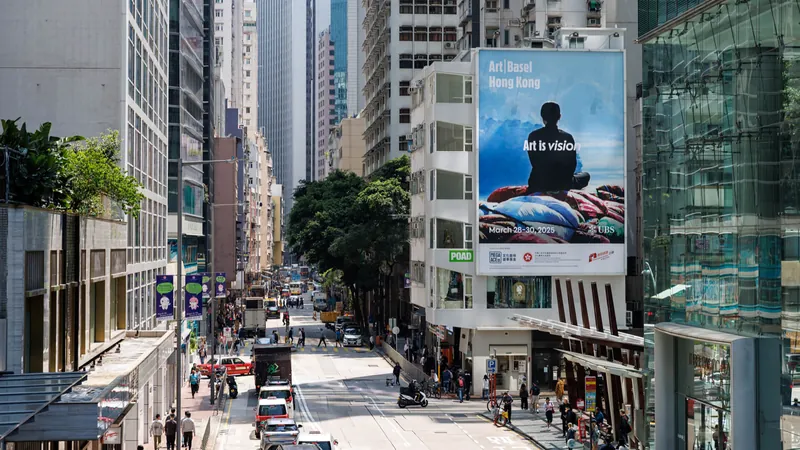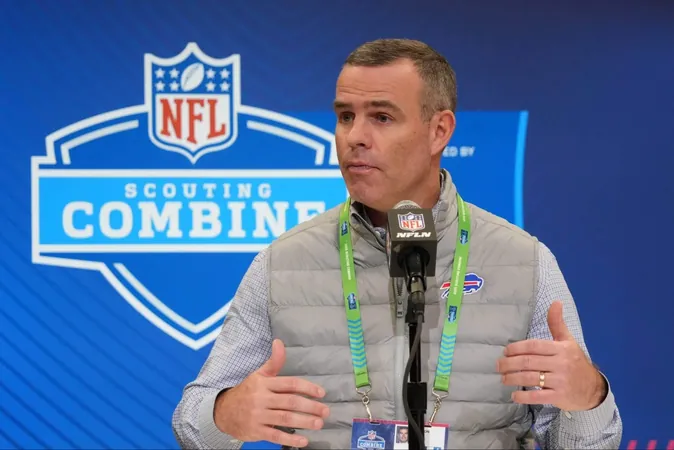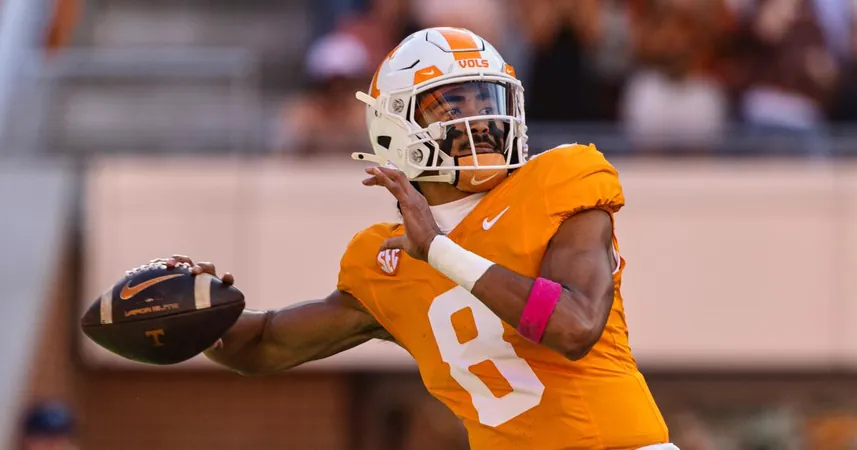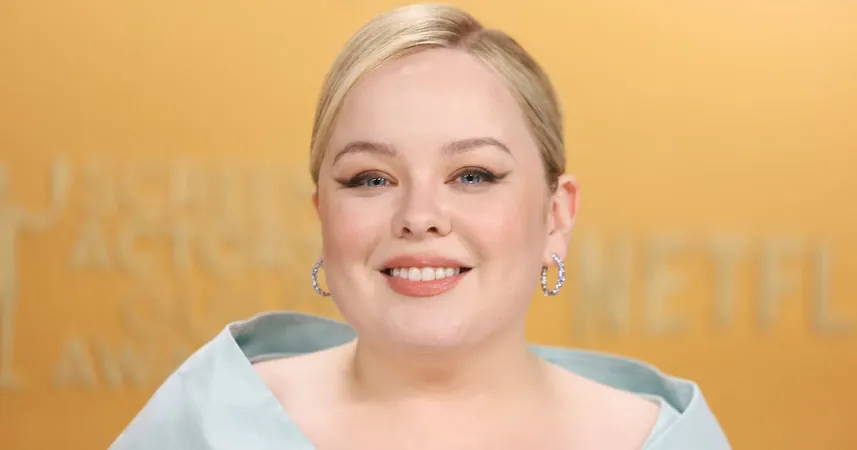
Hong Kong's Art Scene: Where Economic Trends Shape the Future of Creativity
2025-04-11
Author: Ming
Art Week Buzz Amid Economic Uncertainty
As the sun sets over Victoria Harbour, a sleek couple at a vibrant party hosted by the M+ Museum eagerly proclaimed, "We’re here for the vibe!" Their words echoed through the bustling atmosphere of Hong Kong Art Week, a pivotal event marking the intersection of art and commerce in a city grappling with economic challenges. The Hong Kong Convention and Exhibition Centre (HKCEC), decked with a giant electronic billboard, has become the focal point as it hosts Art Basel Hong Kong from March 28-30, where the city’s flagship art fair aims to boost sales amid a cautious buying landscape.
A New Era for Art Central's 10th Anniversary
Just a mile away, Art Central returned to the Central Harbourfront for its 10th year, offering an inviting atmosphere that celebrated smaller galleries. Fair director Corey Andrew Barr emphasized the evolution of Art Central, adapting to global shifts and prioritizing emerging talent. As Asian collectors increasingly diversify their tastes, younger generations are steering the market towards contemporary and experimental works, particularly those highlighting diversity and inclusivity.
Tracing Historical Ties: Art and Trade
Hong Kong’s rich history as a commercial hub spans nearly two centuries, deeply rooted in trade between China and Europe. Exhibitions at the Hong Kong Palace Museum shed light on historical links with France, while the Hong Kong Museum of Art showcases the artistic exchanges that thrived during the 18th and 19th centuries. This symbiotic relationship between local and foreign artists laid a foundation for Hong Kong’s vibrant art scene.
From Colony to Cultural Epicenter
Hong Kong’s journey from a British colony to a special administrative region of China has been marked by geopolitical shifts, especially concerning its governance and economic autonomy. Recent developments, including a national security law enacted in 2020, have fueled debates about its local identity within China's framework. Yet, despite these tensions, Hongkongers continue to engage in cross-border shopping, enriching the dialogue around culture and commerce.
Current Trends in the Art Market
Data from Clare McAndrew, founder of Arts Economics, highlights China's position as the third-largest art market, holding a 15% share. The evolving landscape suggests a pivot towards lower-valued art, as transactional volumes increase despite falling high-end sales. The bustling atmosphere at Christie’s Hong Kong auction on March 28 underscored this shift, showcasing works that ranged from affordable pieces to multi-million dollar masterpieces.
Dramatic Auctions: The Pulse of Art Sales
Auctioneers at Christie’s displayed an electric energy as they navigated competitive bids from both in-house and online participants, creating palpable tension in the room. The staggering sale of Jean-Michel Basquiat's work for a whopping $14.5 million captured the awe of attendees, setting the stage for dialogues on ownership and the value of art.
Government Backing for Art Initiatives
Both Art Basel and Art Central benefit from governmental support, enhancing their roles as platforms for artistic expression and innovation. Curators like Enoch Cheng emphasize the importance of visibility for emerging artists, creating vibrant ecosystems akin to cities like Berlin and Tokyo.
Shaping Future Collecting Trends
As discussions around a significant wealth transfer continue, the dynamics of family-based art collections are evolving. More women are stepping into leadership roles in decision-making, emphasizing research-oriented collecting. High-value transactions, such as a Yayoi Kusama piece for $3.5 million, reflect this transformative landscape.
Navigating an Uncertain Economic Landscape
In light of recent geopolitical tensions and escalating tariffs between the U.S. and China, the art market finds itself at a crossroads. The mounting import taxes threaten to dampen consumer spending and investment in art. Reflecting on these challenges, Art Basel CEO Noah Horowitz acknowledged the “unprecedented times” the industry faces. How this economic climate will sculpt the future of Hong Kong's art scene remains to be seen, but one thing is clear: the pulse of creativity will continue to thrive amidst the chaos.



 Brasil (PT)
Brasil (PT)
 Canada (EN)
Canada (EN)
 Chile (ES)
Chile (ES)
 Česko (CS)
Česko (CS)
 대한민국 (KO)
대한민국 (KO)
 España (ES)
España (ES)
 France (FR)
France (FR)
 Hong Kong (EN)
Hong Kong (EN)
 Italia (IT)
Italia (IT)
 日本 (JA)
日本 (JA)
 Magyarország (HU)
Magyarország (HU)
 Norge (NO)
Norge (NO)
 Polska (PL)
Polska (PL)
 Schweiz (DE)
Schweiz (DE)
 Singapore (EN)
Singapore (EN)
 Sverige (SV)
Sverige (SV)
 Suomi (FI)
Suomi (FI)
 Türkiye (TR)
Türkiye (TR)
 الإمارات العربية المتحدة (AR)
الإمارات العربية المتحدة (AR)